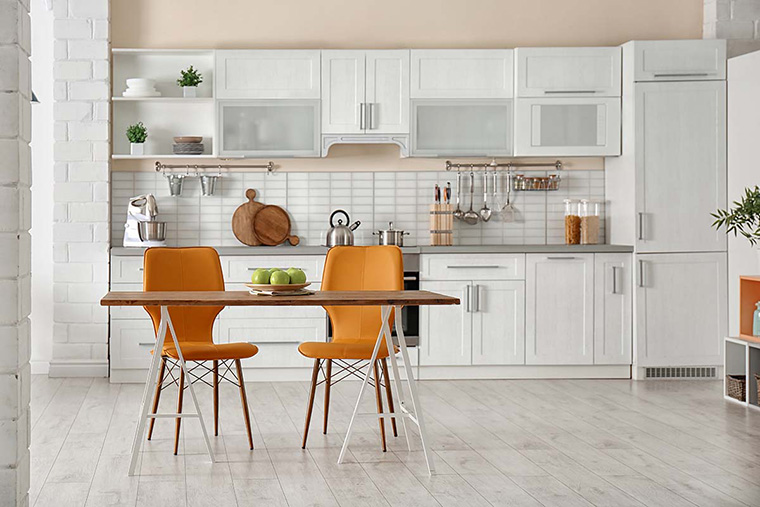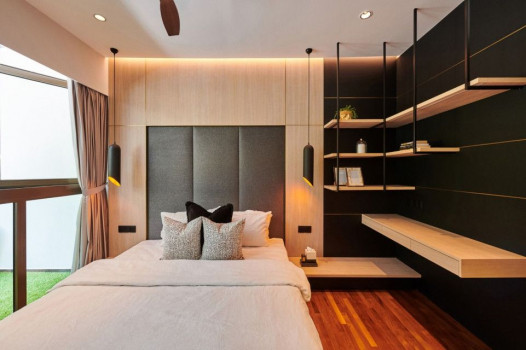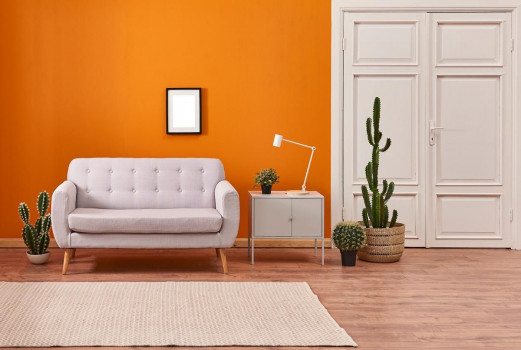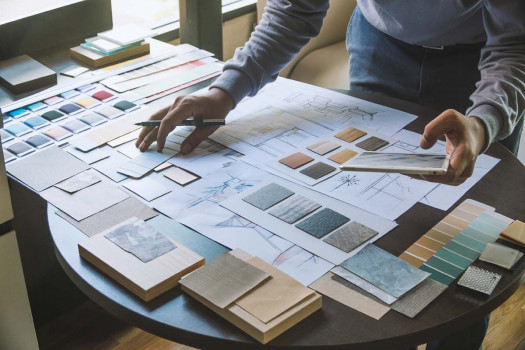Five Important Steps to Prepare for a Kitchen Renovation




©Shutterstock
Kitchen is one of the most important parts of a house for its function as a space for preparing and cooking food. In fact, a kitchen nowadays has also become a place to gather with family members and relatives. Many homeowners now desire to have a comfortable and beautiful kitchen to accommodate cooking and socialising activities. No wonder, of the many rooms in the house, the kitchen tends to be one undergoing a renovation.
Kitchen renovation is not only about renewing an old design nor simply making it look more appealing. More importantly, the renovation should be based on the functionalities. Before starting the renovation, there are at least five important considerations.
Assess Your Needs

© Christian Mackie, unsplash
Before renovating, you should first do some needs assessment as it helps to create optimal design. Functionality may be more important than aesthetic features of your dream. To help you list down what you need, ask yourselves some questions like the following examples and write down your answers.
- What do you usually cook? Is it easy-to-make or complex and elaborate?
- How much space will you need? Do you need an island?
- What appliances will you put in your kitchen? For example, an oven, a microwave, a refrigerator, etc. It is advisable to decide from the beginning, especially deciding on big appliances, so that there won’t be much change/revision in the kitchen design.
Take a Look around Your Kitchen

©Shutterstock
Check the space surrounding your kitchen. You should pay attention to the details like the wall structure, the water system, the electricity line, and the exhaust fan if you want to install a cooker hood. In addition, make a list of the existing kitchen elements, such as the kitchen counter, the cabinet, the sink, and decide which will stay and which to replace.
These small details could have an impact on your kitchen design and your budget as changing those parts can be costly. The less that you change, the more money that you can save.
Look for Design Inspirations

©Ionut Vlad, unsplash
Before the renovation, you should set a kitchen design or a concept that will suit your preference. Having had a rough idea of your needs and layout will help to focus your search. Look for design inspirations to get ideas of not only the whole appearance of the kitchen, but also its storage system and capacity. If there is a certain element that you like, for example the sink type, the tiles motif, or the cabinet, make not of those inspirations. These will be helpful as guidance when choosing the materials for the kitchen.
Set Your Budget

©Rustic Vegan, unsplash
Once you have a concept in mind, do a rough calculation. One that greatly affects the cost of a kitchen design is the choice of materials. To know the options and the estimate of the price, you can do some research in a building material store. However, adjusting the renovation cost within your budget doesn’t mean that you can simply settle for the cheapest ones. Choose the best material. Spending more on good-quality kitchen elements is better than spending more money for the reparation if they are broken in the future.
High-quality kitchen materials can keep your kitchen long-lasting. Pick good quality materials, for example, a granite or solid surface tabletop. Although it is more expensive, these two materials are durable and sturdy. Another example is deciding on cabinet hinges. Choose the high-grade and lasting ones as they are the main elements for opening and closing the cabinet.
Next, you can save some money on your cabinet finishing. For instance, for those of you who like a clean look, you can opt for shiny laminate coating that is cheaper than duco finish solid wood. Don’t forget to set aside at least 10 per cent of your total budget for any unpredicted changes.
Hire a Designer

©Naomi Hébert, unsplash
All of the steps mentioned above can be done yourself. However, it would definitely be much easier to hire kitchen designing service providers, such as an architect, an interior designer, or a contractor. A designer can help you formulate the right design by finding out more about your needs and your habits in the kitchen. The design concept will be planned based on the details that you give. A designer would also anticipate all the possible risks in the kitchen and cooperate with other professionals regarding the installation of electricity, gas, and kitchen appliances. Hire an interior designer or an architect with a good track record. The better his/her track record is, the more impressive and functional the result will be.




 Indonesia
Indonesia
 New Zealand
New Zealand
 Philippines
Philippines
 Hongkong
Hongkong
 Singapore
Singapore
 Malaysia
Malaysia







